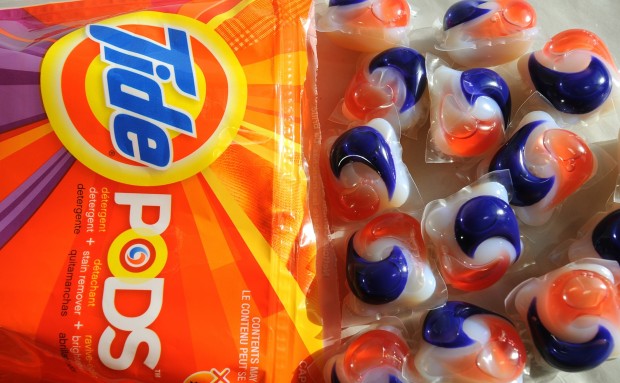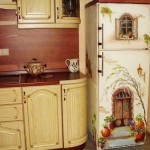
Cleaning Products,Cleaning Tips
Poisons Under Your Sink – All About Cleaning Detergents
Aren’t you sick and tired of watching commercials where women are casually walking down the street with a laundry detergent ready to flash at random strangers? Why do cleaning product companies try so hard? When I started to think about this a few years ago, I realised it is actually so easy to make your own solutions, that commercial companies feel you need to constantly be reminded that yours are no good, and unless you buy Domestos, Ariel and Ciff for instance, you will never make it in the war against grime, bacteria and dust. But consider the following ways in which these cleaning agents actually do more harm than good.
1. Air pollution.
According to research wives and mothers who stay at home are at a higher risk for developing cancer (nearly 60% more likely). The research pointed cleaning detergents as the main source of air pollution and the dangers chemicals and vapours as one of the main reasons for cancer. It should come as no surprise too, that commercial air fresheners are no good as well. They contain Formaldehyde (which irritates the lungs and the mucous membranes), Petroleum (flammable) and p-dichlorobenzene, which is a toxic irritant. These are carcinogenic as well.
2. Asthma and allergies.
The air in any typical household is around 200% more polluted than the air outside. The main reason for that is most of the cleaning detergents release toxic vapours and gasses. In addition a home that is too clean predisposes to developing more allergies in children. Some exposure to germs is normal for children and is even necessary as it creates immunisation in them. Still, though research shows that in a few schools have been noticed higher rates of asthma in children linked to a cleaning detergent.
3. Domestic cleaners are found to irritate skin, eyes and airways.
Some detergents are found to cause eczema in little children and adults, watering and swollen eyes. In addition, the fumes coming from many detergents are so strong that can cause dizziness, headache and sickness, for this reason.
4. Damage to Natural Surfaces.
Some cleaning detergents are not recommended on natural surfaces and textiles as they shrink them or damage them. Hardwood, silk and others are not very good with toxic detergents.
5. And last, but not least detergents are poisonous.
Yearly, hundreds of children poison themselves, because somehow they managed to get to the cupboard with all the solutions. And by the way see how attractive Tide Pods look! If I was a 4 year-old I’d definitely like to try whether they taste as good as they look!

Image Credit: Consumer Health Day
Here are some ingredients you should be careful of:
Ammonia – highly volatile chemical compound that causes chemical burnt if applied on skin.
Bleach – another very aggressive cleaner, that should never be mixed with ammonia under any circumstances. In fact, it is a curious fact that a gas is produced when you mix ammonia and bleach, and a very similar gas was used in WWI.
Lye – sodium hydroxide – causes chemical burns and if it somehow gets in your eyes it could cause blindness.
P-dichlorobenzene and naphthalene – prolonged exposure can lead to liver damage and cataract formation.
How To Read Cleaning Detergent Labels
Know a meaningful label from meaningless and misleading ones. Some companies offer voluntary program in which the ingredients of their cleaners, air fresheners, polishes, and more are listed in a descending order of concentration. ‘Аntibacterial’ or ‘antimicrobial’ is usually refereed to as a product that kills or inhibits the growth of bacteria, generally in/on foods, inanimate surfaces, or hands. If you see kid’s toys, kitchen or other children’s products to be labelled as ‘anti-bacterial’ it is more likely that they need to be reported as they can’t be antibacterial and this is a misleading label.
Also when you book cleaning services ask them what kind of detergents they work with. From experience I know that Carpet Cleaning Experts Melbourne, or Greener Carpet Cleaners are a few of Melbourne’s cleaning companies that use all natural solutions and rely more on their equipment rather than the aggressiveness of the cleaning solutions. It is important to read and ask questions so you can make more informed decisions.
Also look out for signal words such as ‘Beware’, ‘Caution’, ‘Warning’ and ‘Danger’.
 ‘Danger’ – means that a product is highly toxic and may cause irreversible damage to skin or eyes (including blindness). If it is highly toxic, and may cause death if accidentally inhaled or ingested, then the word POISON is normally included on the label.
‘Danger’ – means that a product is highly toxic and may cause irreversible damage to skin or eyes (including blindness). If it is highly toxic, and may cause death if accidentally inhaled or ingested, then the word POISON is normally included on the label.
‘Warning’ on a label means that the product is mildly to moderately toxic. It is not likely that it will kill you, but it could do some permanent damage.
‘Caution’ – means the product is less dangerous than the one with warning,
‘Irritant’ – not necessarily toxic, but these have ingredients that can cause, eye, lung, nose, skin and throat irritation.
Hope this helps!
- How to Get Ready for The Spring Cleaning - August 27, 2018
- How to be more productive if you are a work-at-home mom - January 11, 2018
- Last Minute Halloween Party Ideas for Toddlers - October 30, 2017
cleaning products, commercial cleaning products, natural cleaning products







